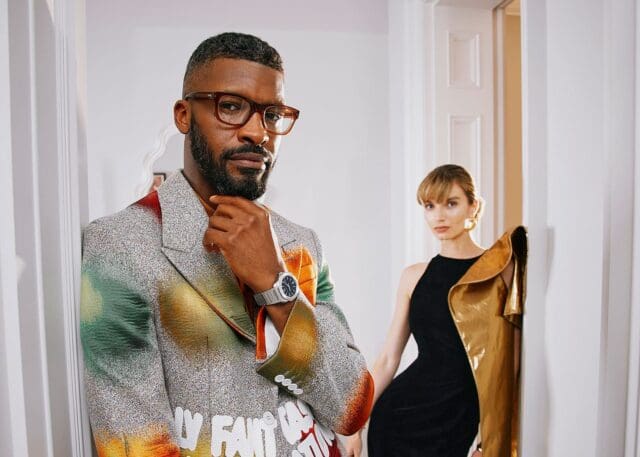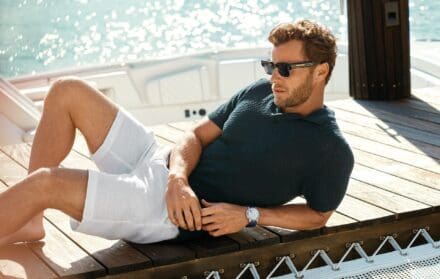
The future of fashion: What to expect in 2021 and beyond
Amid the uncertainties and unknowns brought on by COVID-19, one thing is clear: the pandemic has permanently changed consumer behaviour, creating new imperatives for luxury brands. So what does a fashion house need to do to
All products are chosen independently by our editors. Luxury London may earn commission on items purchased.
Digital is more important then ever
Fashion is moving beyond the world of physical retail. The State of Fashion 2021 report by Business of Fashion, in conjunction with McKinsey & Company, found 71% of fashion executives expect their online business to grow by 20% or more in 2021. As digital consumption continues its dominance and growth in the new year, and shoppers demand ever-more sophisticated digital interactions, fashion players must develop more engaging and social experiences to encourage consumers to connect.

While virtual fashion isn’t new, luxury brands are increasingly moving into avatar fashion for video games. In 2019, Louis Vuitton released a League of Legends collection while Moschino debuted one for The Sims. But, in the absence of physical fashion weeks, this year has seen brands embrace augmented, enhanced reality shows and holographic experiences as a new futuristic reality. Case in point is Hanifa’s virtual offering presented during lockdown using 3D models while Balenciaga’s dystopian AW21 collection, which was shown both as a virtual reality show using Oculus headsets and through a precedent-setting video game entitled Afterworld: The Age of Tomorrow, had the industry questioning where it might be headed next.
Social media comes to the fore
TikTok’s popularity exploded at the beginning of the pandemic with a growing number of luxury brands using the video app for the first time. In July 2020 alone, TikTok welcomed Fendi, Balenciaga, Dior and Stella McCartney, following the likes of Burberry, YSL, and Gucci, who joined earlier this year. Livestreams have also become more popular than ever. Over the course of the year, more brands have been hosting virtual events via Instagram Live, whether on their own channels or, to boost their reach, in partnership with e-tailers and influencers.

In September 2020, Burberry broadcast its SS21 show on Twitch – becoming the first luxury retailer to livestream a fashion show on the Amazon-owned streaming service more commonly used by gamers. Meanwhile, brands such as Bottega Veneta, Alexander McQueen and Jimmy Choo used lockdown as a time to push out inspirational, community-driven social content. Expect to see future feeds full of posts that spark creative conversations and luxury livestream shopping gaining in popularity.
Shopping with a conscience
The world has been forced to pause, causing many to have an “I’ve got too many things” epiphany. A seemingly unstoppable, escalating cycle of newness was the norm for too long but consumers are now thinking long and hard before they buy. It’s predicted that this will be the start of a more conscious fashion era where we buy less but it means more. “Companies should adopt a demand-focused approach to their assortment strategy while boosting flexible in-season reactivity for both new products and replenishment,” says the BoF report.

Recycling is chic
Sustainability has become a crucial emerging trend across many sectors in the past few years but the pandemic has really accelerated its importance. Sustainability and eco-conscious fashion are high on the industry’s agenda as more consumers want products that do good. Gucci, Louis Vuitton and Burberry are among luxury brands which have, in the past year, launched recycled and repurposed collections. Likewise, high street names such as COS now offer online and in-store recycling initiatives. There is also a growing number of brands dedicated to creating solely recycled fashion and, as people become more aware of sustainability, customer demand is rising. Brands playing catch-up will need to review their eco-conscious efforts for 2021 or be left behind.
Ethics and transparency are key
It has been inspiring to see so many luxury fashion brands diversify and unite behind worthy causes during the pandemic. As a result, consumers are more likely to demand that their favourite names stand for something now – and shun those that don’t. It will be the brands that offer something different (original design or a refreshing brand ethos) that will thrive in the future.
The recent BoF report found that 55% of consumers now expect fashion brands to care for the health of employees in times of crisis. It states: “With garment workers, sales assistants and other lower-paid workers operating at the sharp end of the crisis, consumers have become more aware of the plight of vulnerable employees in the fashion value chain. As momentum for change builds alongside campaigns to end exploitation, consumers will expect companies to offer more dignity, security and justice to workers throughout the global industry.”
Read more: The fashion designers taking inspiration from the art world










